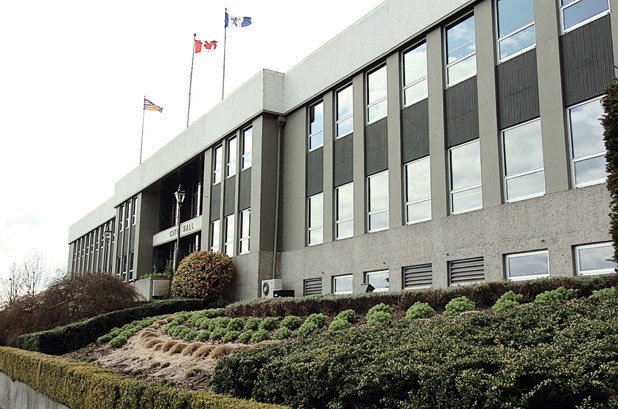A vote on New Westminster’s 2023 budget was split along party lines Monday night.
At a special council meeting on April 17, council voted 5-2 in favour of a five year financial plan bylaw that incorporates a 6.4 per cent property tax increase and a $173.2-million capital budget for 2023.
“We are making generational investments right now that our growing city really needs, and these are not inexpensive projects,” said Mayor Patrick Johnstone. “They are not easy projects but they are making us a stronger city.”
Johnstone and councillors Ruby Campbell, Tasha Henderson, Jaimie McEvoy and Nadine Nakagawa, members of Community First New West, supported the budget, while New West Progressive councillors Daniel Fontaine and Paul Minhas opposed the budget.
Council members supporting the budget stated the proposed tax increase takes into account the priorities expressed by many community members on issues such as the need to invest in the city’s infrastructure, affordable housing, climate action and downtown livability. Councillors opposing the budget bylaw said a 6.4 per cent increase is too rich for taxpayers at a time when many residents and businesses are struggling.
“This is not, in my view, a budget of this entire council. It is a budget of a portion of this council, and does not reflect the desires, the vision and goals of every single member of this council,” Fontaine said. “And, as a result of that, I am going to struggle with that, and I will not be able to support it.”
Before voting on the bylaw, council gave community members an opportunity to share their thoughts on the 2023 to 2027 financial plan.
At Monday’s meeting, 12 residents provided input on the budget, with eight supporting the budget, saying it reflects the values important to citizens, such as addressing the needs of the city’s most vulnerable citizens and supports the Seven Bold Steps on climate action previously endorsed by council.
“The 6.4 per cent increase in property taxes is fairly modestly compared to a lot of our other neighbours in Metro Vancouver,” said resident Rohan Singh to grumbles from some in council chambers. “Quite frankly, I'm surprised it's not higher. It could be argued that the city should be doing more. We should be building more housing. We should be offering better services to those that are least able to access things that those of us who are comfortably housed can get. We need more active transportation, we need to keep the most vulnerable in our city safe. To do all of this need, we to start paying today for the city that we want to see tomorrow.”
Four residents expressed concerns about various aspects of the budget, including the need for more funding for the police department and the impact that a 6.4 per cent property tax increase would have on residents with low incomes or on fixed incomes.
After hearing from delegations, Fontaine proposed an amendment to the motion that council give three reading to the financial plan bylaw – but amend one of the attachments to the bylaw to adjust revenues and reduce the city’s projected surplus by approximately $1 million, such that it would produce a 5.4 per cent property tax increase in 2023.
In a 5-2 vote, council rejected the amendment, with some saying they couldn’t support “kicking the can down the road” to future years and supporting the need to invest in the city now. Johnstone said his reading of the budget is that the city doesn't have a surplus this year.
Under the Community Charter, the City of New Westminster is required to adopt a five-year financial plan bylaw before May 15.



